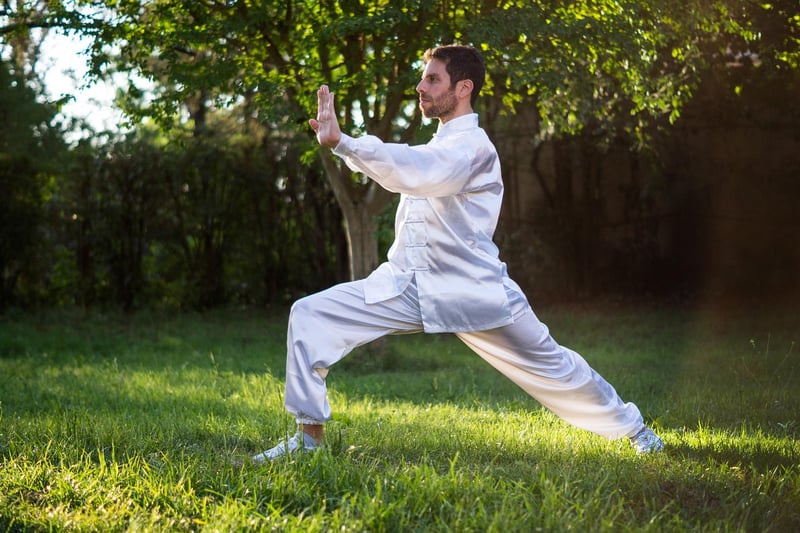Tai Chi Flow
#Mindfulness
#Physical Well-being
#Stress Relief

Practices for Body & Mind Connection + Tai Chi Flow
The Importance of Body & Mind Connection
In today's fast-paced world, it's crucial to nurture the connection between your body and mind. This bond is essential for overall well-being, reducing stress, and promoting a healthier lifestyle.
There are various practices that can help strengthen this connection and improve your mental and physical health.
Practices for Body & Mind Connection
- Meditation: Take time each day to meditate. Focus on your breath and clear your mind of clutter. Meditation can help you become more aware of your body and emotions.
- Yoga: Practice yoga to improve flexibility, strength, and balance. Yoga combines physical postures with breath control and meditation to enhance body-mind harmony.
- Mindful Walking: Take a walk in nature and practice mindful walking. Focus on each step, your surroundings, and the sensations in your body. This can help ground you and improve awareness.
- Tai Chi: Engage in Tai Chi, a gentle form of martial arts that focuses on slow, flowing movements. Tai Chi promotes relaxation, balance, and the flow of energy throughout the body.
Tai Chi Flow
Tai Chi Flow is a beautiful sequence of movements that combines Tai Chi principles with a fluid, dance-like flow. It helps in centering the mind, improving posture, and enhancing overall well-being.
Practice Tai Chi Flow regularly to experience the benefits of improved body-mind connection, reduced stress, and increased harmony within yourself.
Benefits of Body & Mind Connection
- Reduced stress and anxiety levels
- Improved focus and concentration
- Enhanced physical health and flexibility
- Greater emotional stability and resilience
- Increased self-awareness and mindfulness